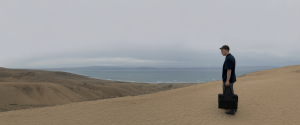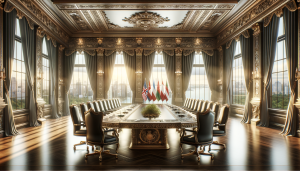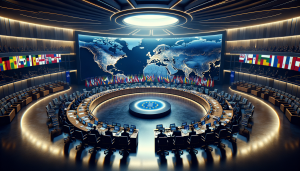Senegal cuts internet again amid widening crackdown on dissent

Senegal blocked mobile internet on Tuesday, ahead of an illegal march to protest the postponement a presidential elections. Rights groups accused authorities of using excessively repressive methods to suppress widespread opposition.
Senegal is in crisis after the sudden postponement of the vote on February 25 to December. Many see it as an attempt to prolong the mandate of President Macky Sall and a threat against one of the few remaining democracies left in the coup-hit West Africa.
After violent clashes occurred between protesters, police and other groups late last week the government has refused to allow a planned silent march by activists for Tuesday. It also ordered mobile operators not to provide internet access.
The ministry of communications said in a statement that the suspension was needed because subversive and hateful online messages were responsible for the unrest.
|
Netblocks, an internet monitor, said that the incident “underscores the increasing use of mass-censorship in the nation.”
Amnesty International and the U.N. Human Rights Office accused the authorities for ignoring fundamental rights of freedom of expression and assembly, and of using excessive force to suppress protesters.
Three people have been reported dead and around 270 detained in the violent protests that took place on Friday and Saturday across the Senegalese capital Dakar, as well as other cities.
At a press briefing held on Tuesday, U.N. spokesperson for human rights Elizabeth Throssell stated that “it is essential that the authorities unambiguously order the security force to respect and guarantee human rights.”
Amnesty West Africa’s office stated on X that “the renewed suspension of mobile Internet access today and the ban of the silent march is a violation of the rights to freedom of speech and information.”
The organizers of the march on Tuesday announced that it will now take place at 1100 GMT Saturday, and invited people from all over to participate.
Sall said that the delay in the elections was needed because of electoral disputes which threatened the credibility. However, some opposition legislators and civil society groups denounced the move as an “institutional takeover”.
The standoff has sparked fears of prolonged unrest in what is usually considered one of West Africa’s most stable democracies. In recent years, the region has seen a series of military coups as well as constitutional maneuvers to extend presidency.
The State Department reported that U.S. Secretary Antony Blinken, in a phone call with Sall Tuesday, reiterated U.S. concerns about the situation. He also made it clear that the United States wanted to see the elections proceed as planned.
At a regular press briefing, State Department spokesperson Matthew Miller said: “We are very concerned about the current situation in Senegal.”
We want to return to elections. We would like them to take place February 25, and if not, then as soon as possible thereafter.
The French Foreign Ministry said Tuesday that Senegal should hold a presidential election as soon as possible and must use proportionate force to deal with protests.
Since Monday, a diplomatic delegation from the main political and economic bloc of West Africa, ECOWAS, has been in Senegal to discuss the current situation.
It recommended that a new team be sent as soon as next week in order to assist with the organisation of a national dialogue on politics “as an emergency.”
It said: “The decision to postpone (the election) could cause tensions and lead to a deadlock, and compromise the tradition of peace that is needed for elections in conditions of transparency and fairness.”









No Comments